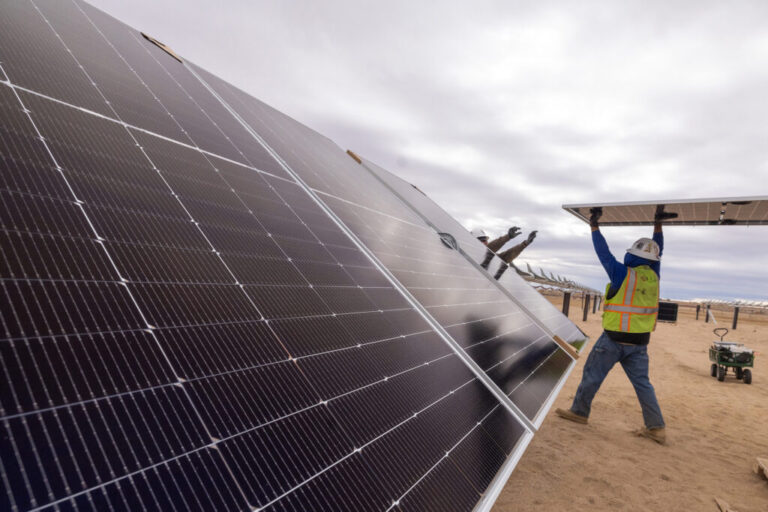President Donald Trump issued an executive order Monday that he said will “end taxpayer support for unaffordable and unreliable ‘green’ energy sources” such as wind and solar.
But it’s not clear whether the order will have much of an effect other than to underscore the president’s antipathy for those power sources. Some observers speculate this action is fulfilling a promise to hardline conservative House members in order to win their votes last week for the massive budget reconciliation bill.
The order is titled “Ending Market Distorting Subsidies for Unreliable Foreign Controlled Energy Sources.” It directs the Treasury department to “strictly enforce the termination of the clean electricity production and investment tax credits” as specified by the bill.
The legislation, called the One Big Beautiful Bill Act, which Trump signed on July 4, says that projects must begin construction by mid-2026 or be placed in service by the end of 2027. This is a rapid phaseout compared to the previous law that had a phaseout that was to begin in 2032.
The executive order advises the Treasury department to allow no wiggle room on the new deadlines. It also says the department must take prompt action to follow the bill’s new limits on tax credits going to entities with ties to China.
In addition, it says the Department of the Interior must revise any policies or practices that give solar and wind power preferential treatment compared to other energy sources.
The Treasury and Interior departments also must make reports within 45 days about how they are complying with the order.
Analysts, lawmakers and officials from renewable energy industry groups had mixed reactions about the significance of the order.
But they do not downplay the effects of the bill that has become law. It is a gutting of incentives from President Joe Biden’s Inflation Reduction Act that will reduce federal government support for renewable energy, electric vehicles and manufacturing of those products and related components. The result, according to reports from Rhodium Group, Princeton University’s REPEAT Project, the think tank Energy Innovation and the Clean Energy Buyers Association, is likely to be a decrease in U.S. jobs and an increase in electricity prices.
And yet, the executive order is likely to have minimal additional effect, said Pavel Molchanov, a managing director for the investment firm Raymond James.
“Contrary to the EO’s headline, the EO does not abolish any tax credits,” he said in an email. “To state the obvious, only Congress can change tax law—which, in fact, is what Congress did last week via the budgetary megabill.”
He expects little or no practical effect from the Interior department provision
“It is worth noting that, under the Federal Power Act, the government cannot favor one type of power generation…
Read More: Trump Issues Executive Order Targeting ‘Unreliable’ Clean Energy Options



